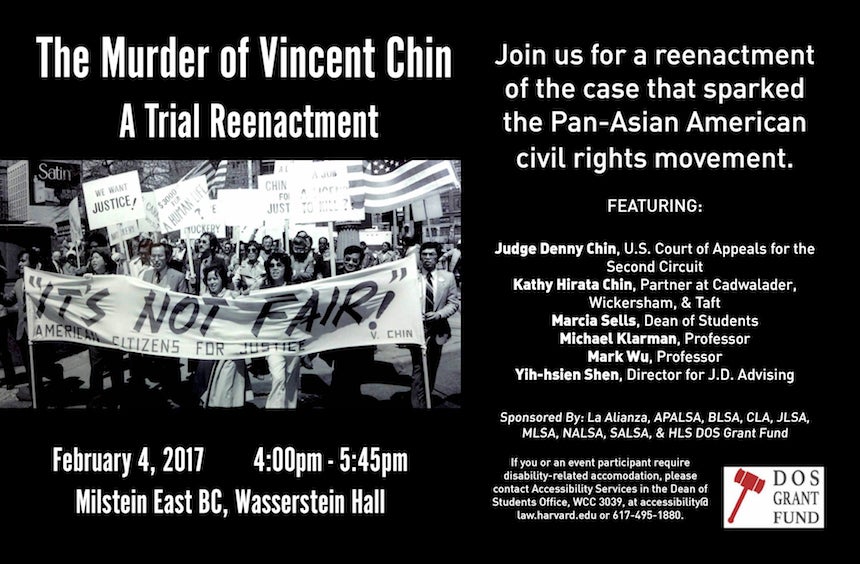
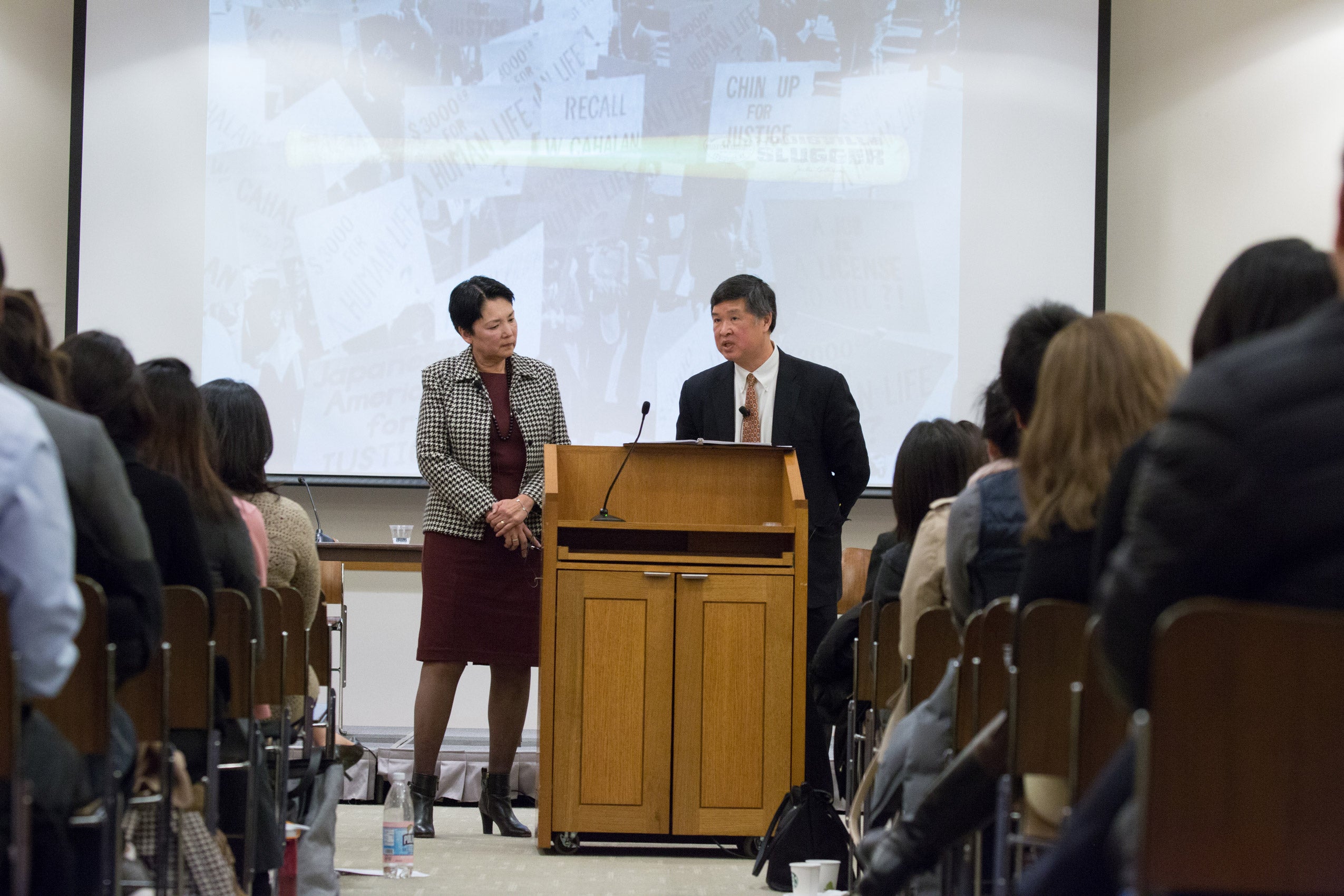
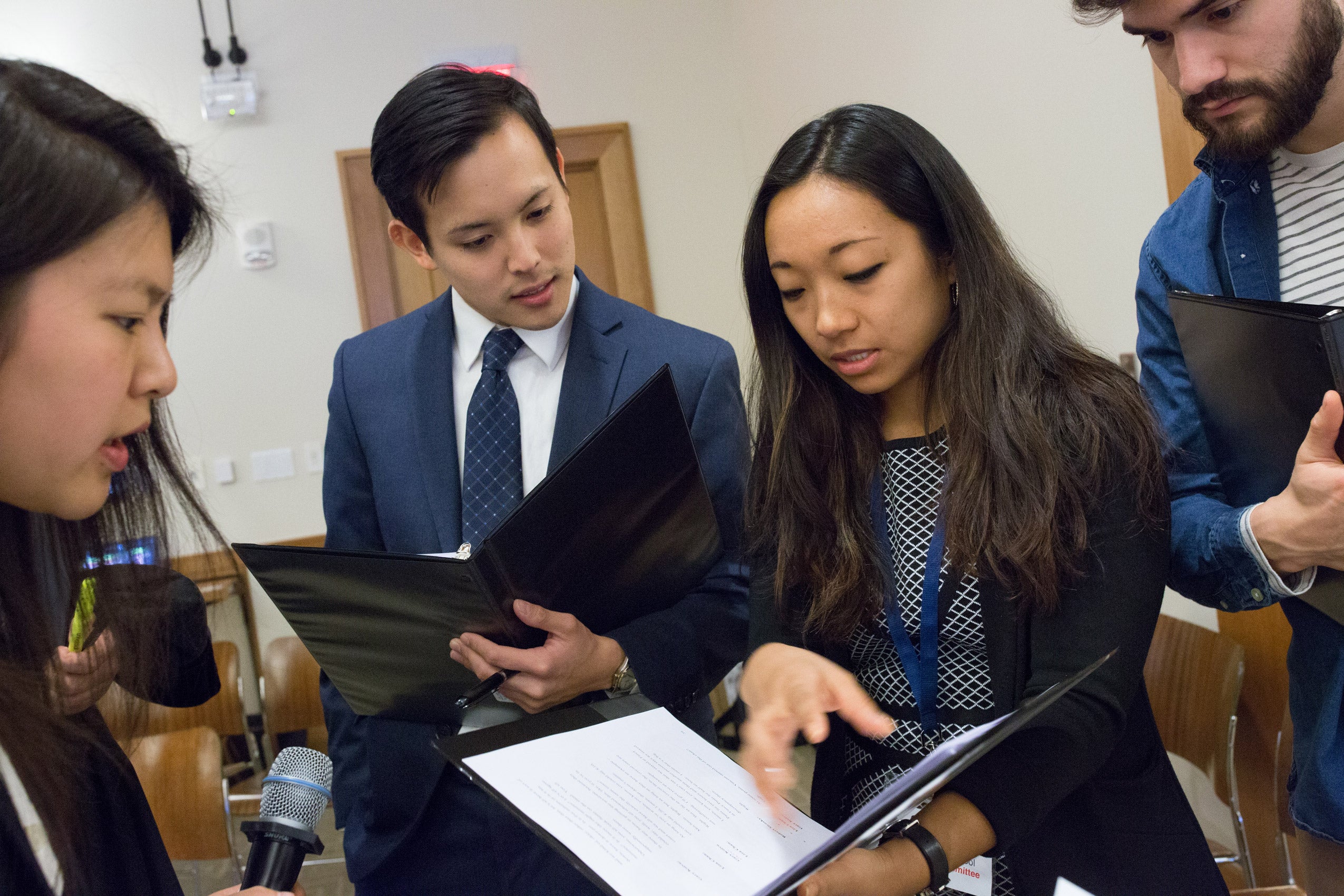
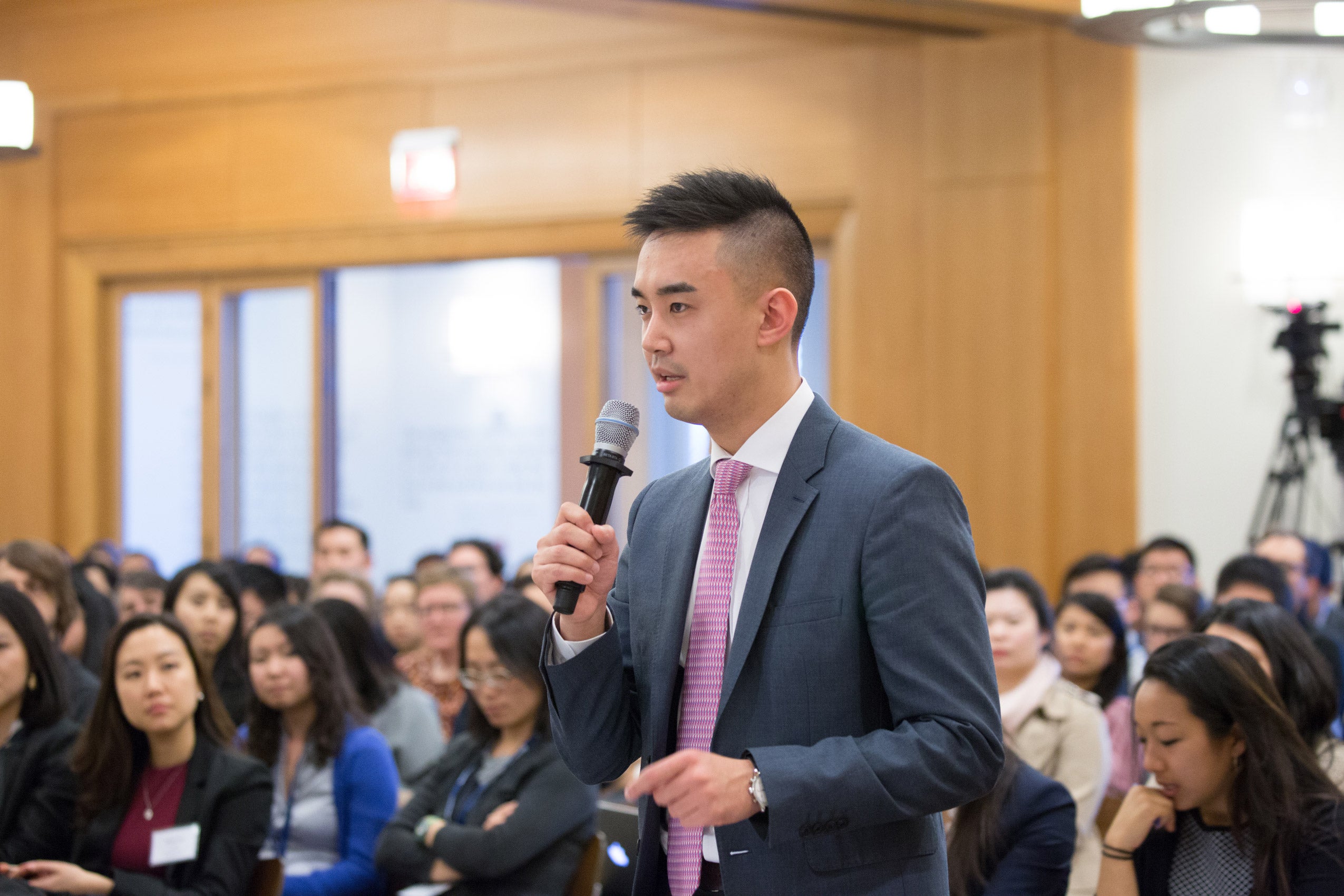
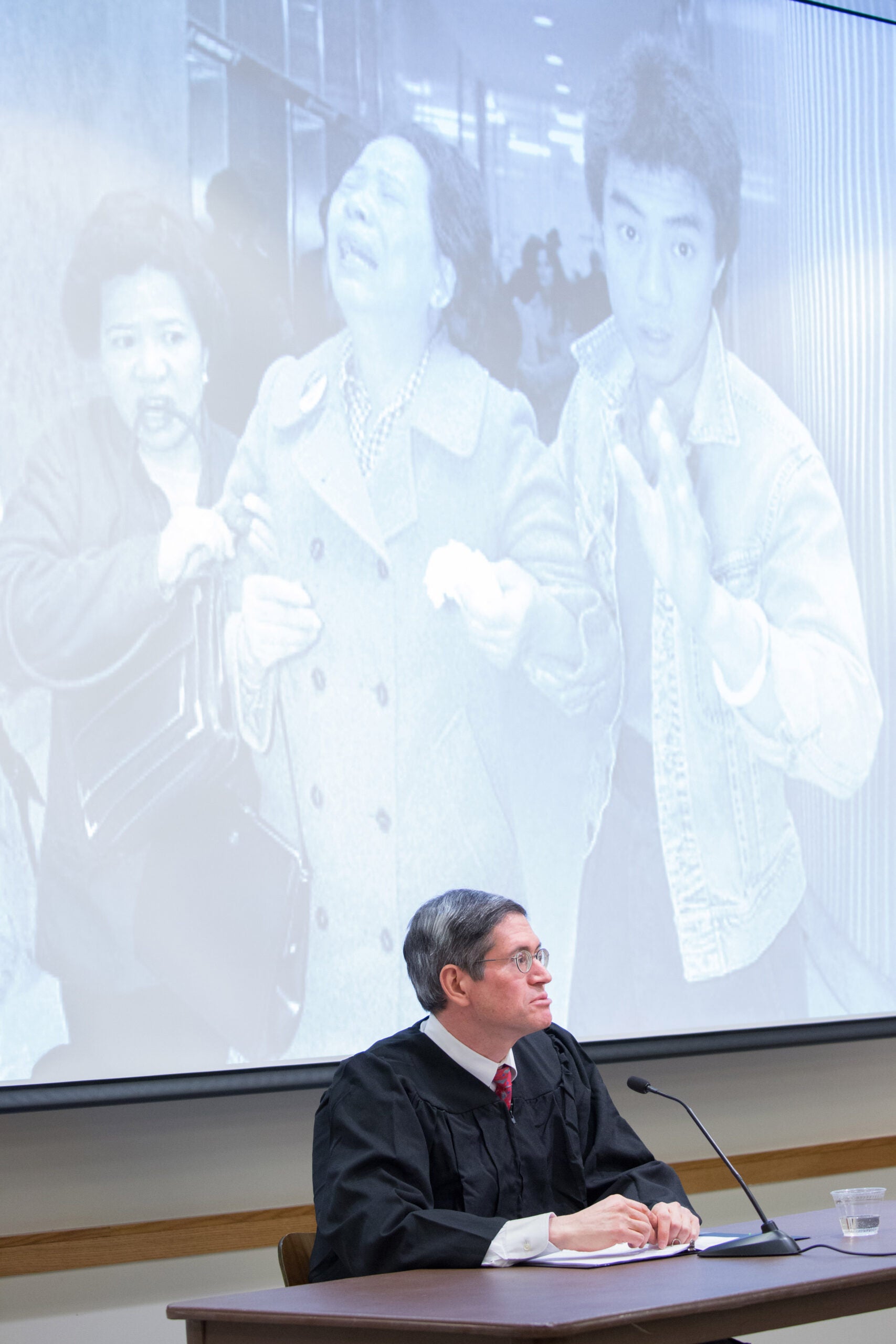
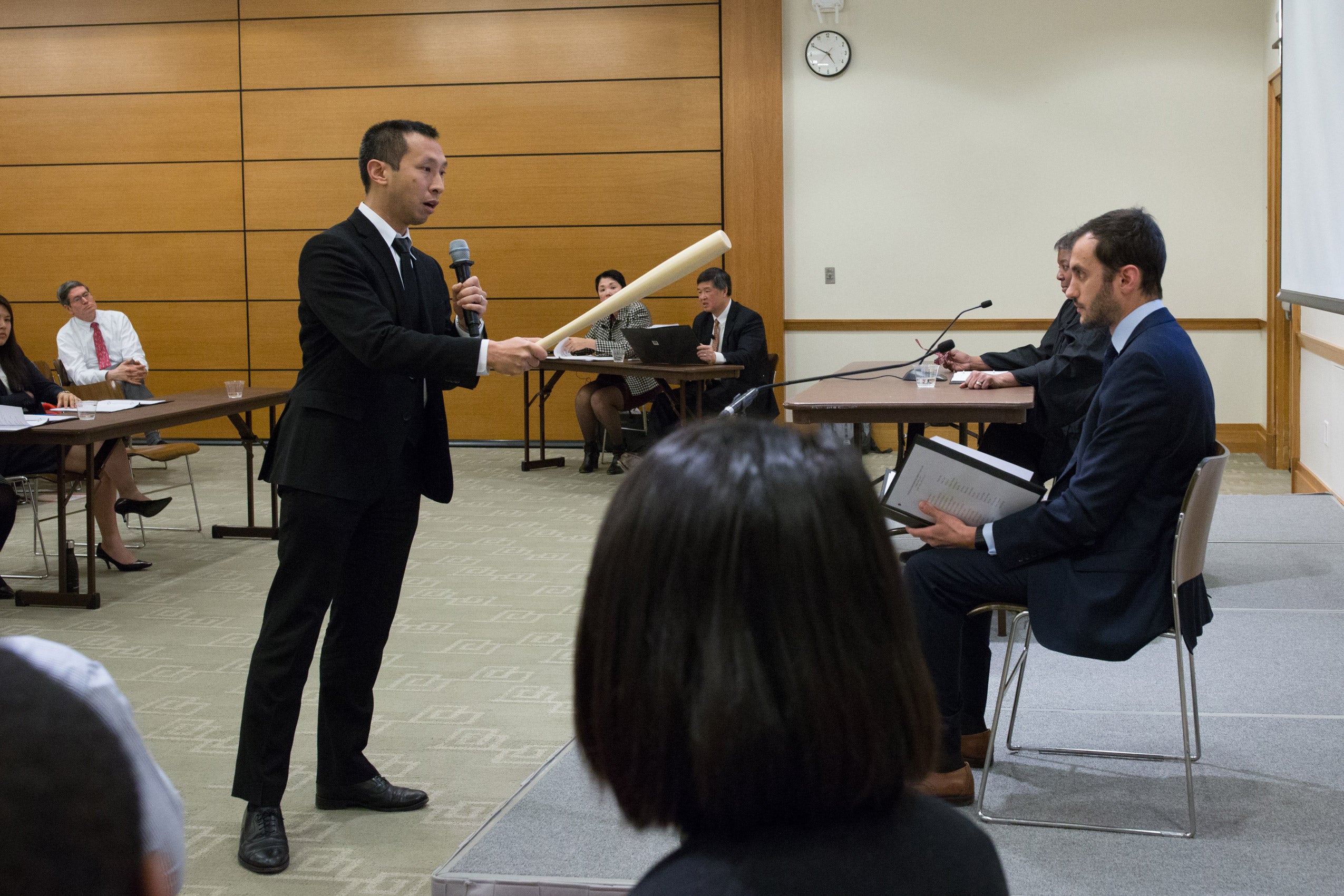
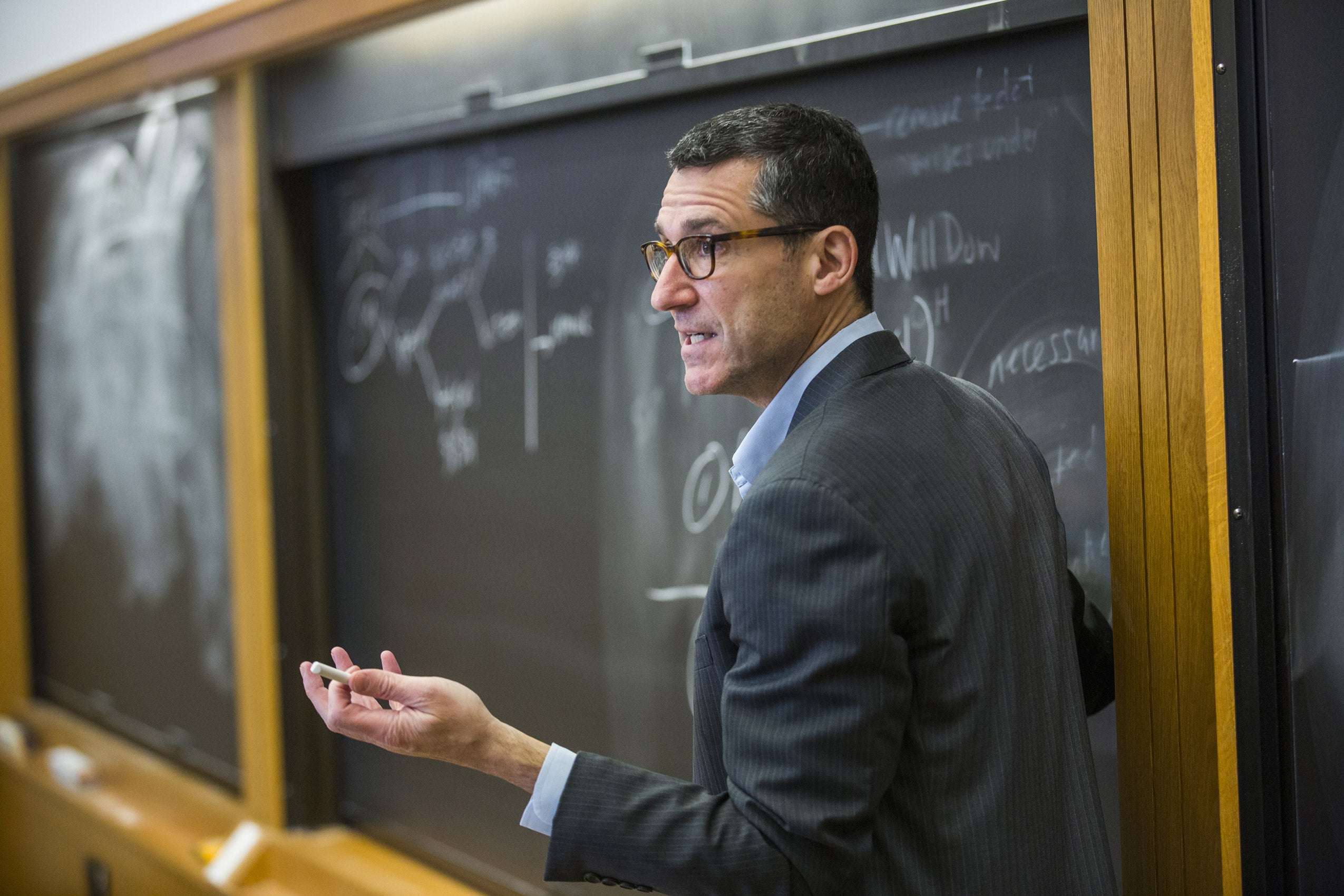
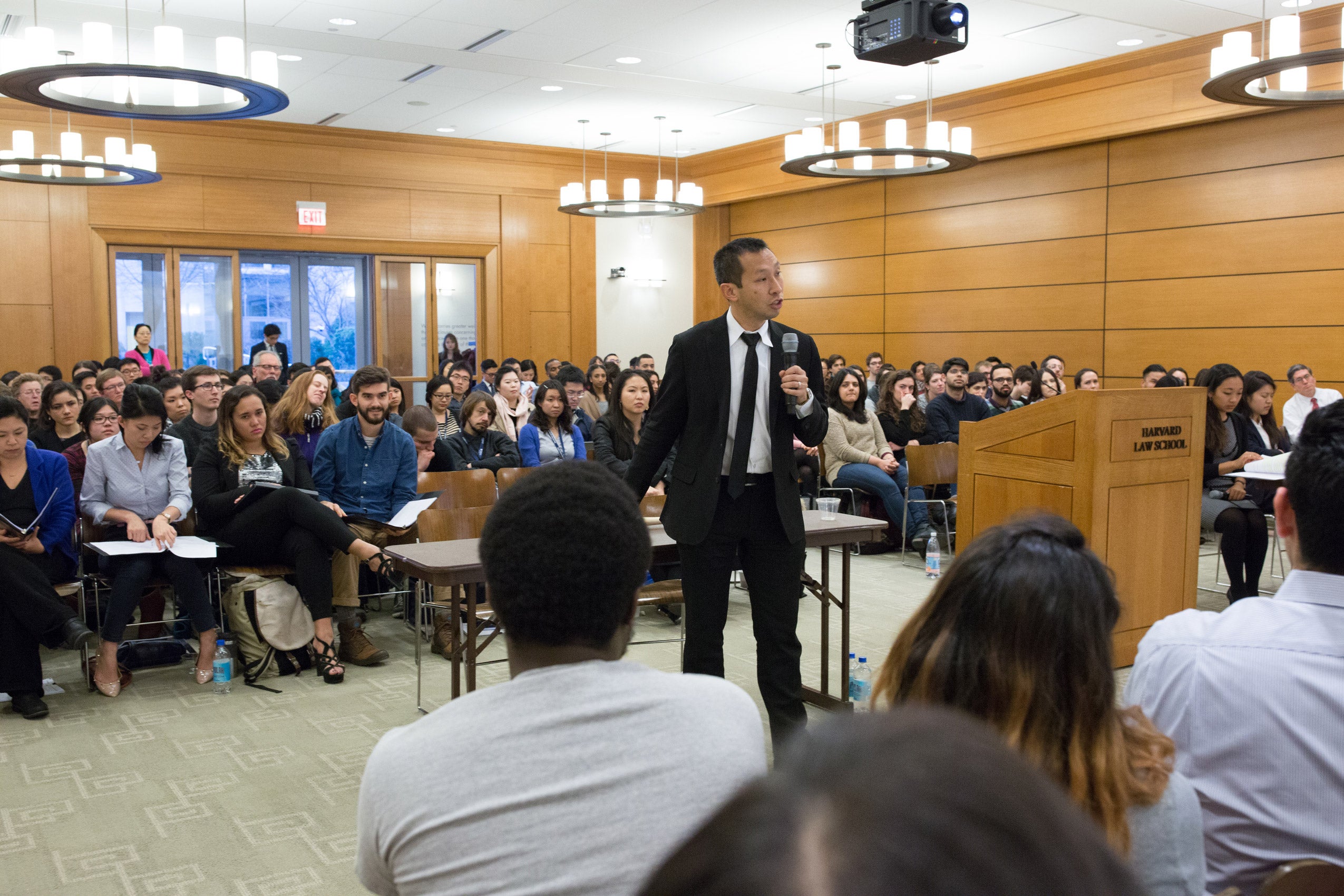
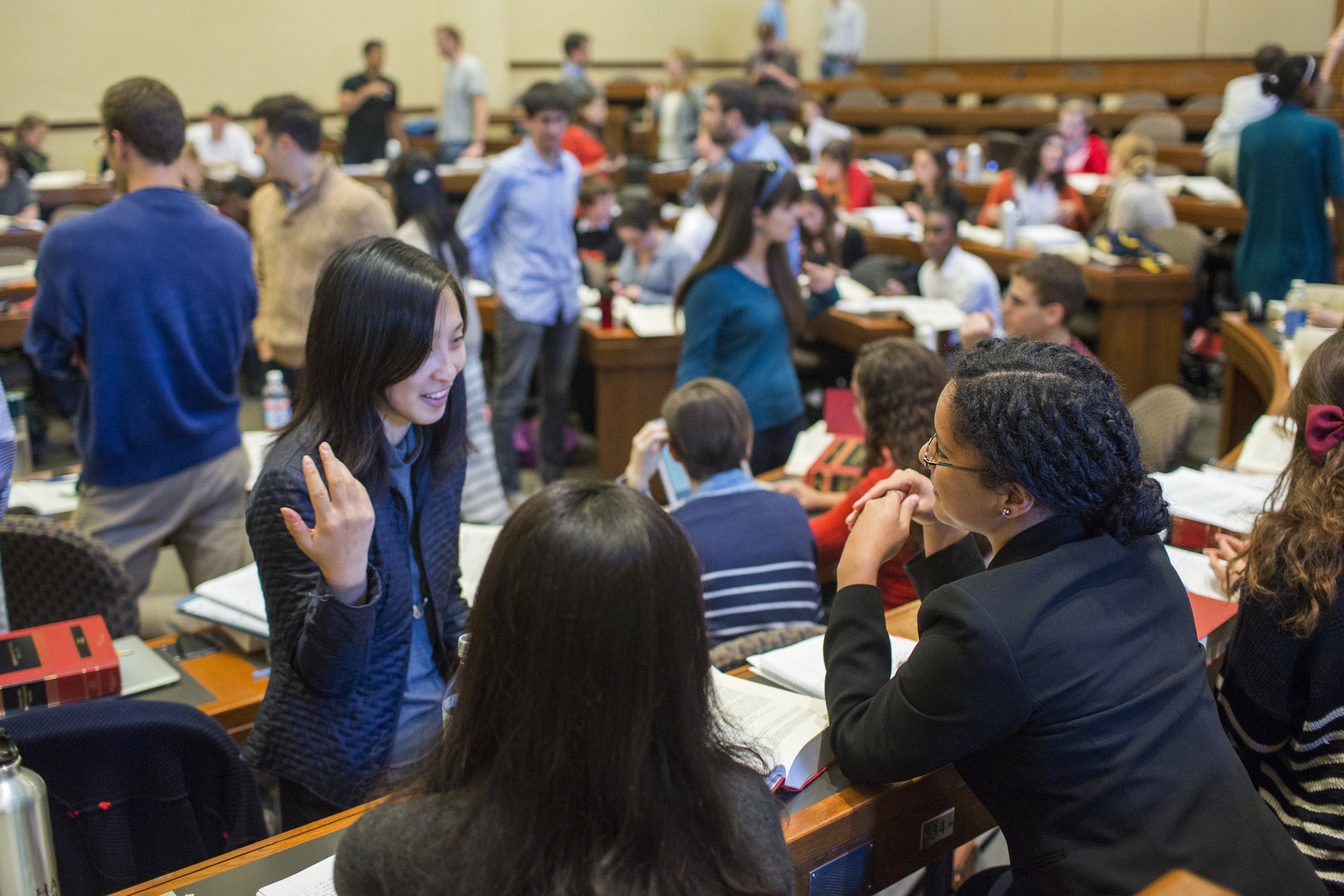
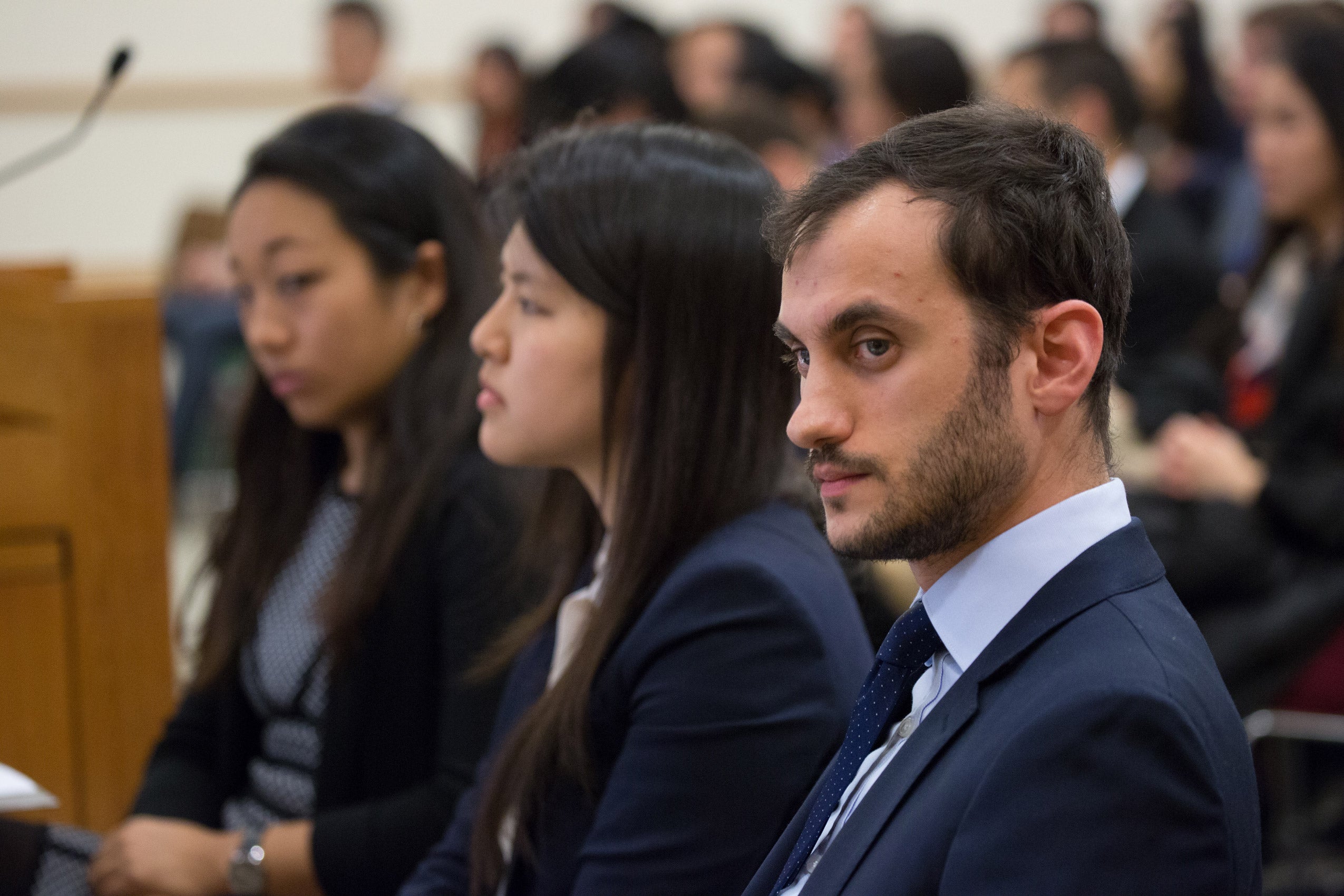
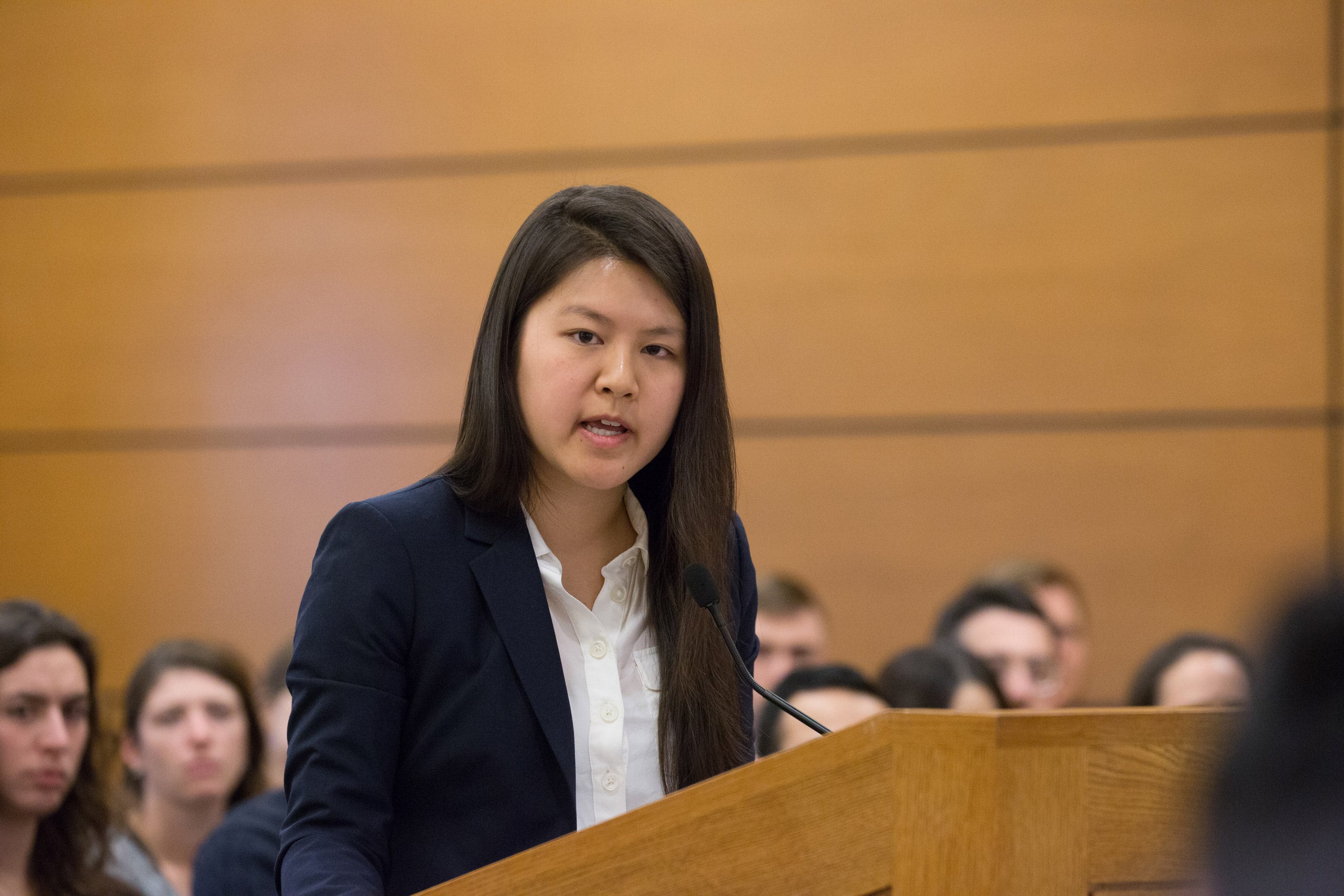
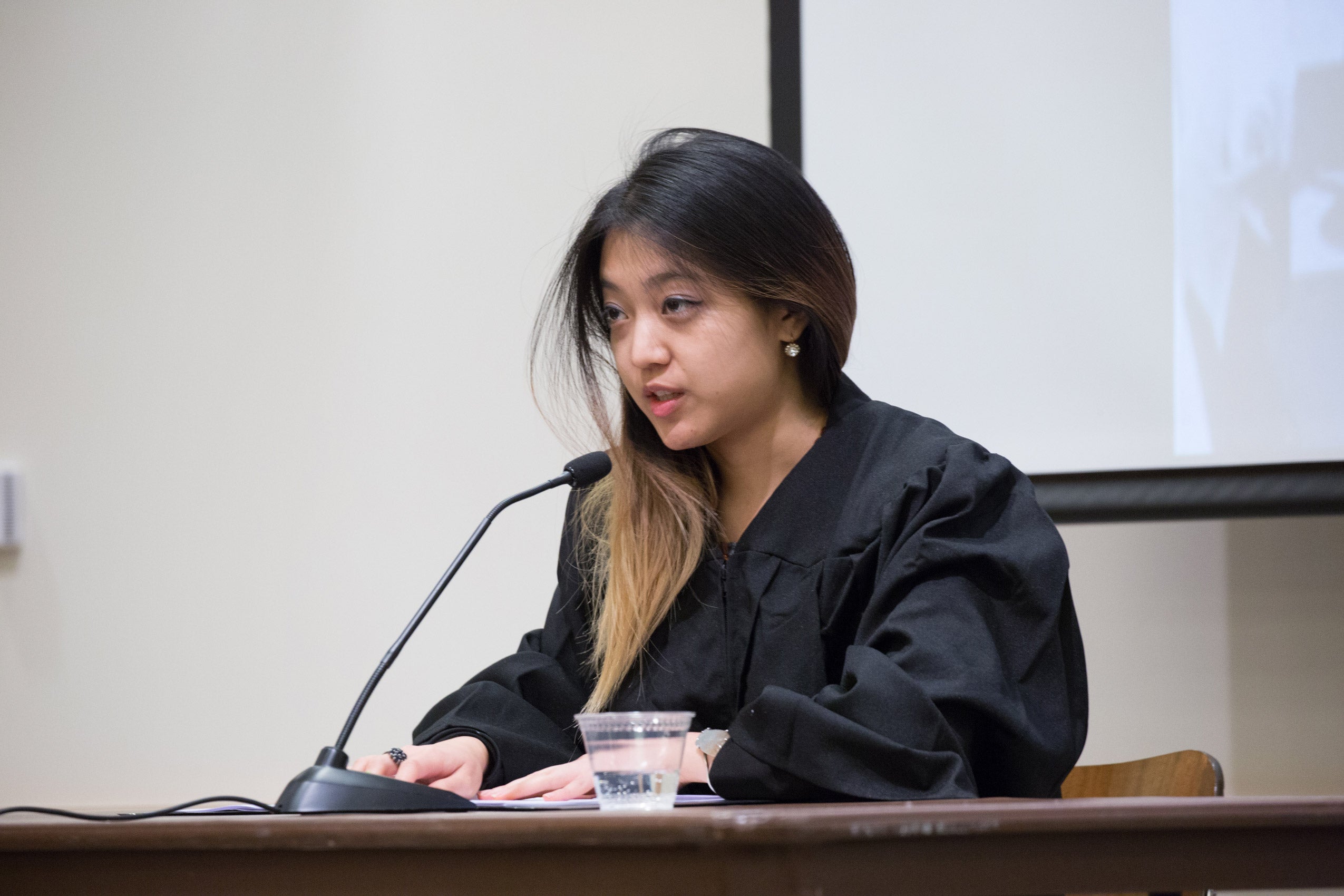
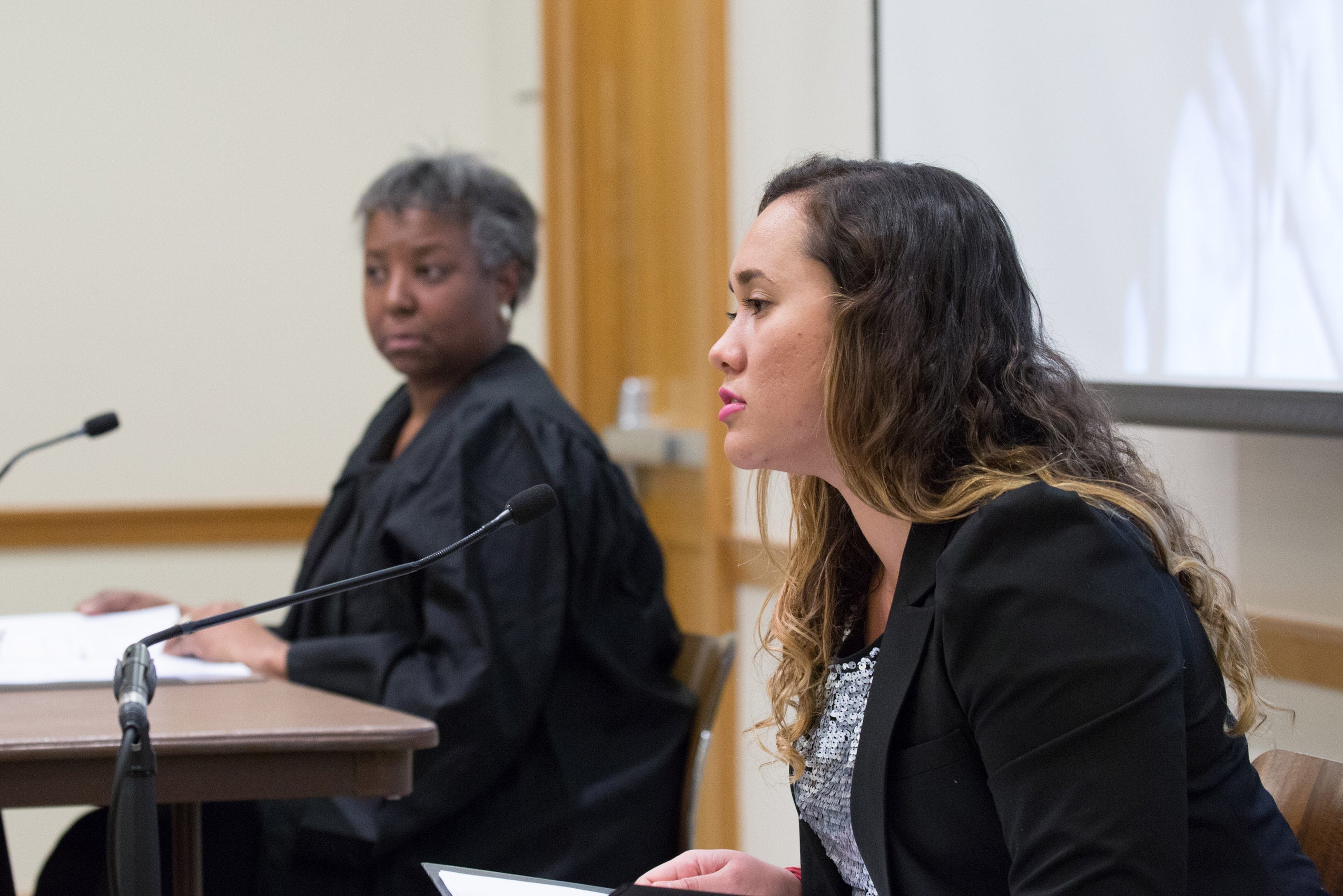
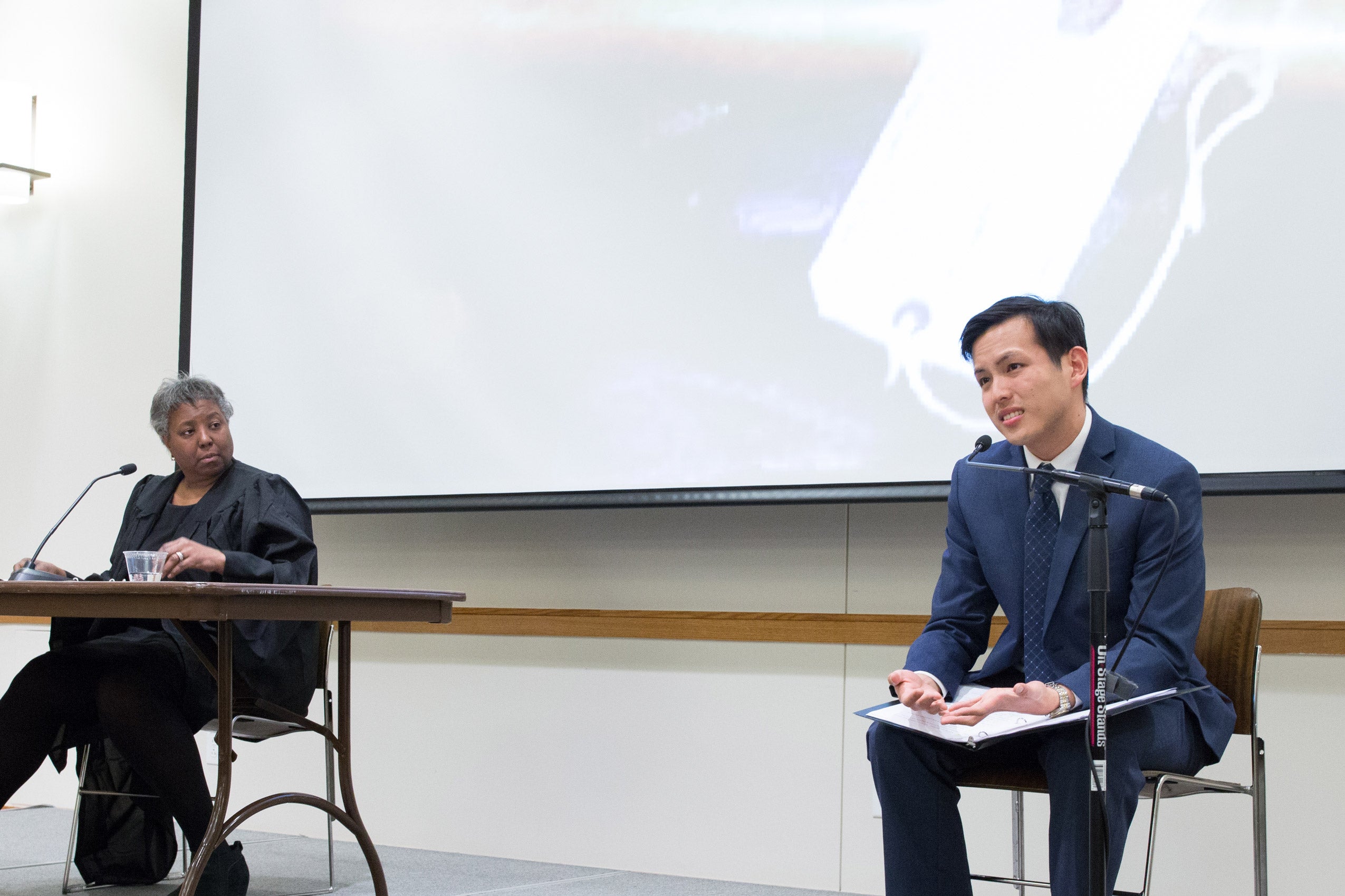
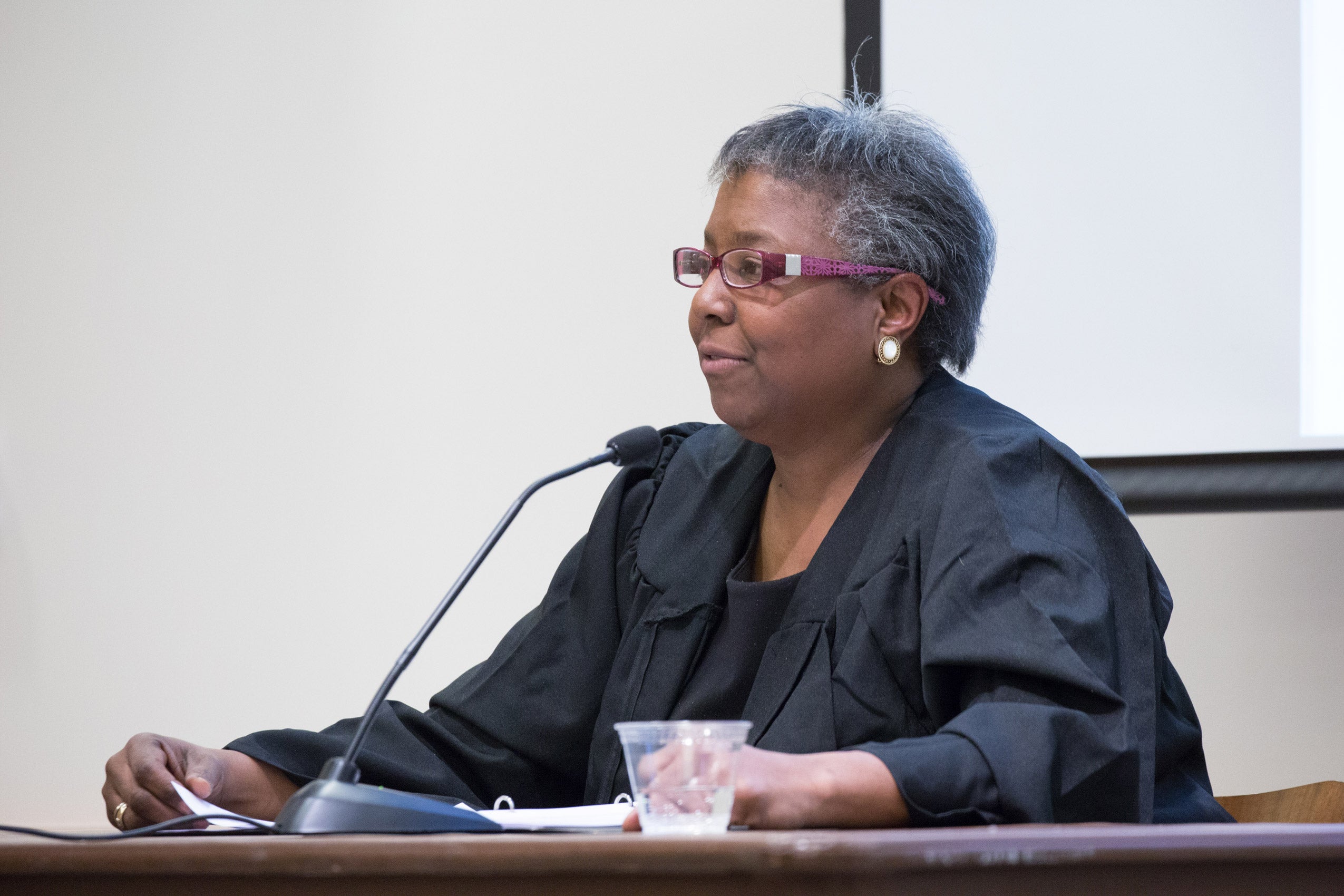
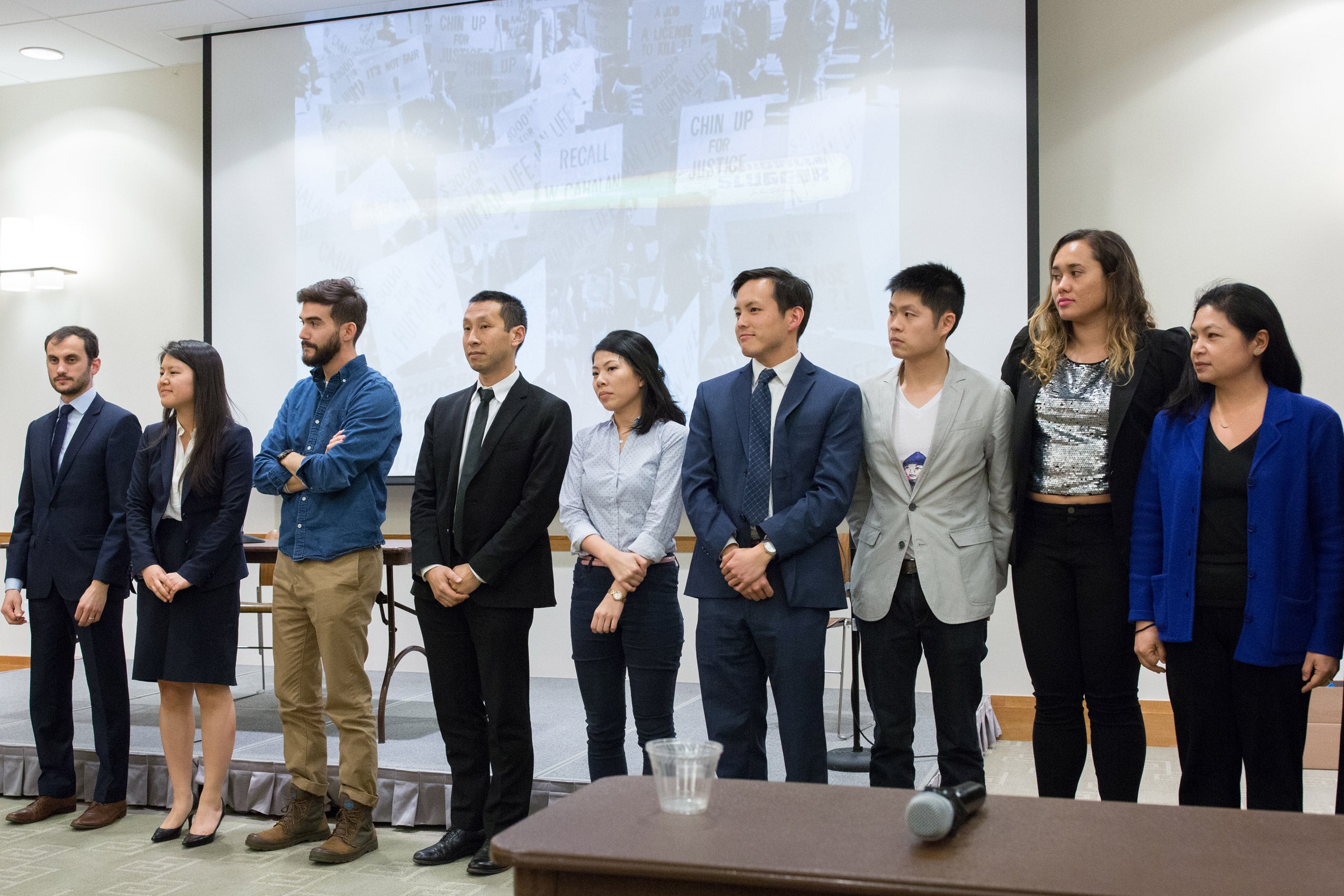
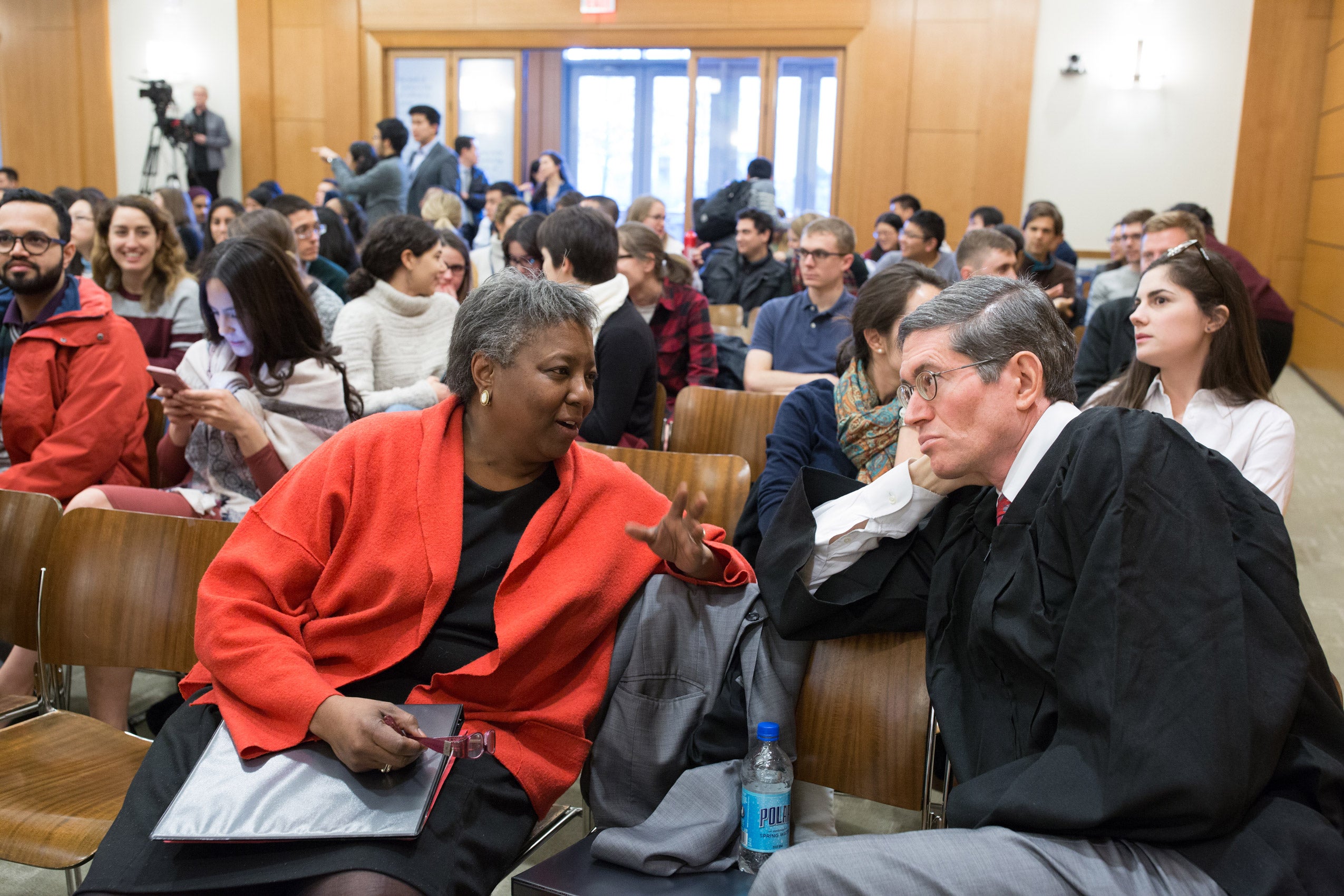
As part of the Asian Pacific American Law Students Association’s (APALSA) annual conference, “Soft Power Hard Knockout: The Asian American Punch,” on Feb. 4, Harvard Law School presented a re-enactment of the Vincent Chin trial, written by Judge Denny Chin of the U.S. Court of Appeals for the Second Circuit. Chin’s wife, Kathy Hirata Chin, a partner at Cadwalader, Wickersham & Taft, Dean of Students Marcia Sells, Professor Michael Klarman, and Professor Mark Wu also participated in the reenactment.
An American of Chinese descent, Vincent Chin was beaten to death with a baseball bat in Detroit in 1982 by two assailants who made comments at the time of the attack suggesting that their animosity towards Chin stemmed from mass layoffs in the Detroit auto industry due to competition from Japanese automakers. After a criminal trial in state court resulted in lenient sentences for both defendants, grassroots activism in the Asian American community led to two federal civil rights actions, citing racial discrimination as the cause of Chin’s murder. Although the defendants were ultimately found not liable for civil rights violations, the case catalyzed the Asian American civil rights movement in the 1980s. The reenactment, adapted by Judge Chin and his wife from court transcripts, portrayed the three trials that followed the attack. (Judge Chin and his wife have no relation to the victim.
For the HLS performance, students assumed the parts of trial attorneys, witnesses, and jurors. Professor Wu played the lead prosecutor, and Dean Sells and Professor Klarman portrayed trial judges. The performance used the actual transcripts from all three trials, including opening and closing statements and direct and cross-examination of witnesses.
According to Sells, the reenactment, which was co-sponsored by APALSA and the Dean of Students Office, was “part of a larger project to have people see the stories that come from court cases.”
Judge Chin agreed, saying that, “Even though [Chin’s mother] did not see justice, a lot of good came from the case. The Sixth Circuit ruled that civil rights laws and protections under the Fourteenth Amendment applied to Asian Americans, contradicting an earlier view that they only extended to black communities. In Wayne County, the practice of prosecutors not attending sentencing hearings was reversed. Michigan and surrounding states passed laws expanding the rights of victims and their families during criminal proceedings. The notion of bias crimes entered the mainstream. Despite what seems like an unfair result, the Chin case helped to change the legal landscape around discrimination targeted at Asian Americans.”
He noted that the outcome of the civil case “wasn’t the result of the political process. It came from the workings of the justice system, or more specifically, of the justice system not working well.” Chin identified several errors the government made while trying its case, ranging from witness preparation to evidentiary objections.Kathy Hirata Chin added, “another big problem was the quality of lawyering, which you see clearly in the reenactment. Someone right out of law school with little experience, and practically no criminal experience, was putting this major case together. That wouldn’t happen now.”
The Vincent Chin trial is the second of ten reenactment scripts Judge Chin has developed. It has been performed more than thirty times around the United States and abroad.
Related Coverage
NPR: Asian-American Lawyers Act Like ‘22 Lewd Chinese Women’
